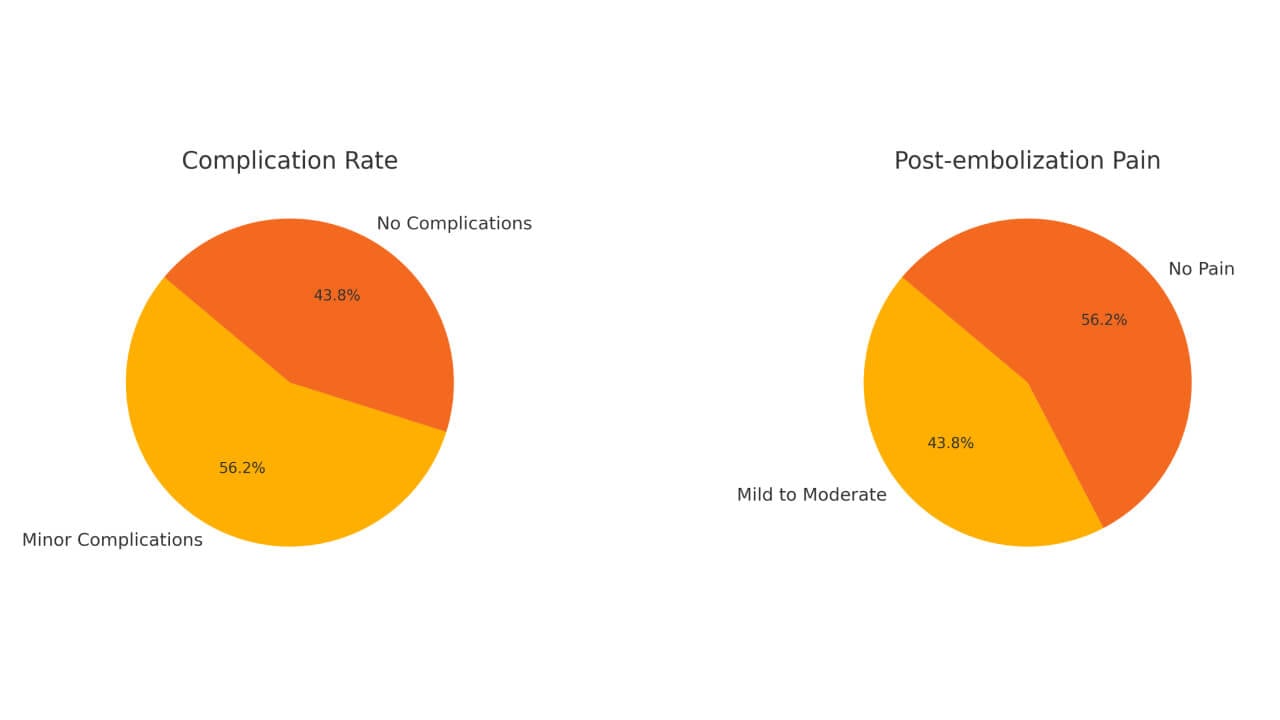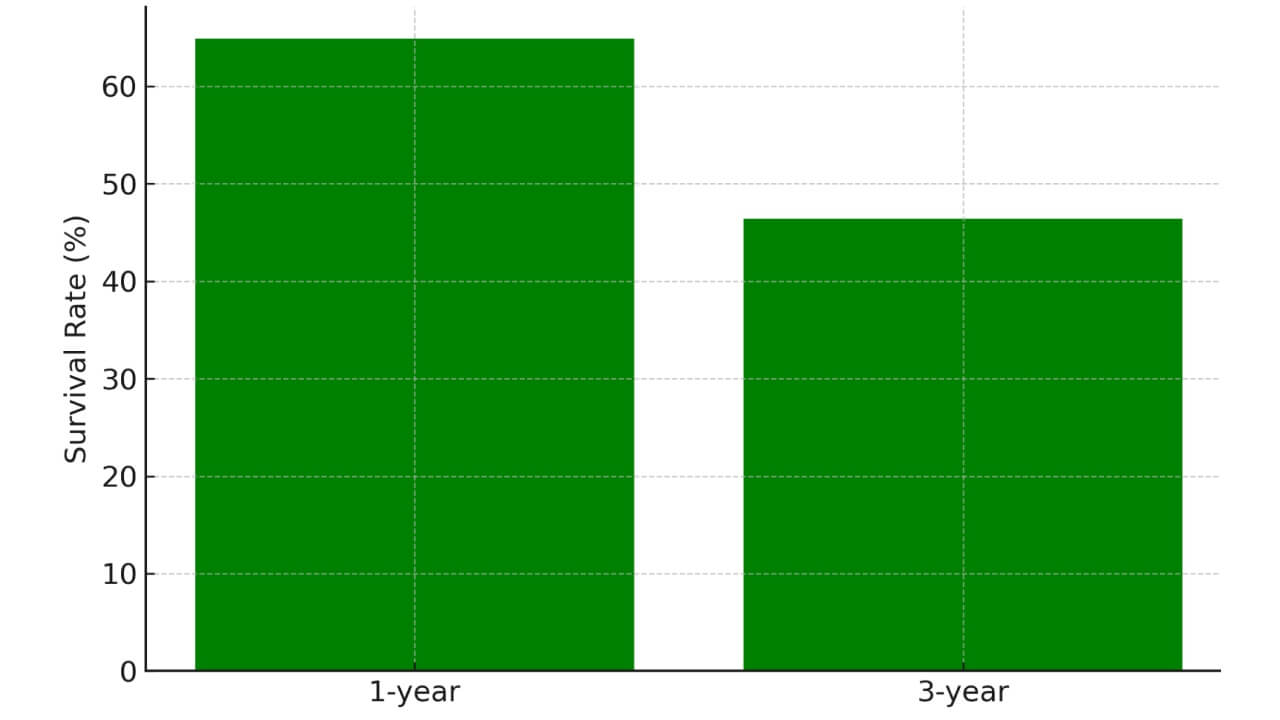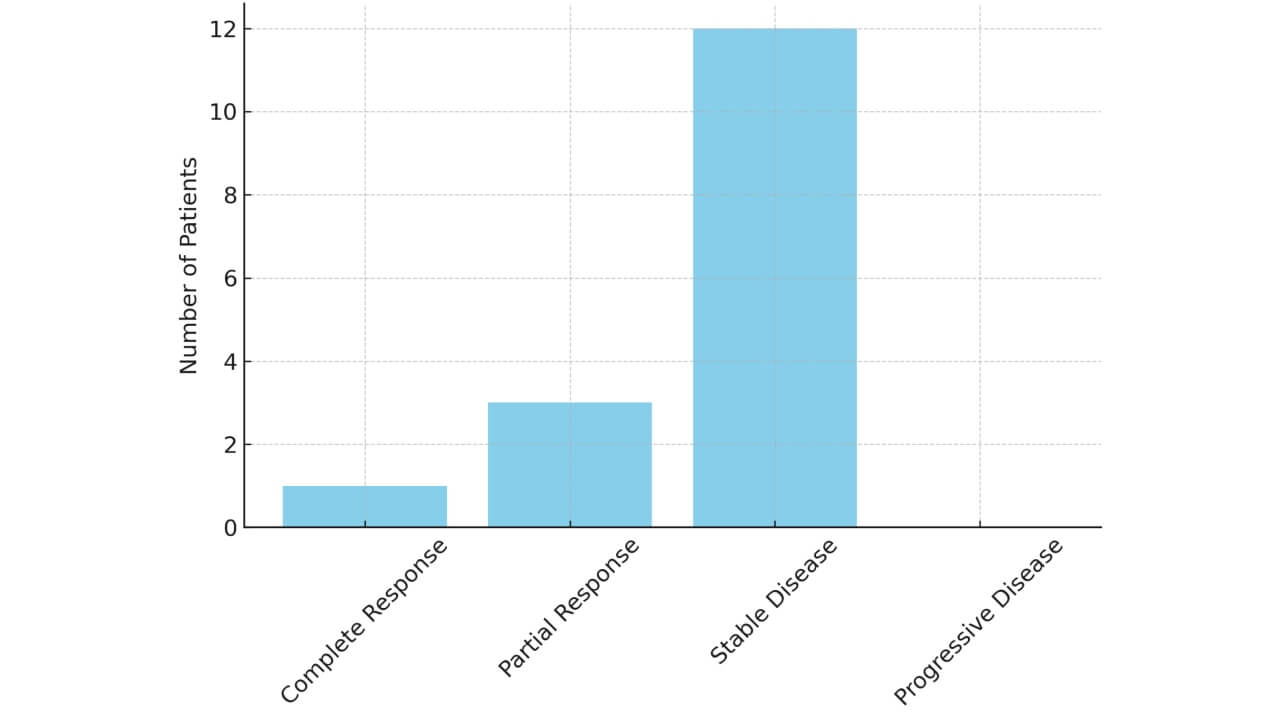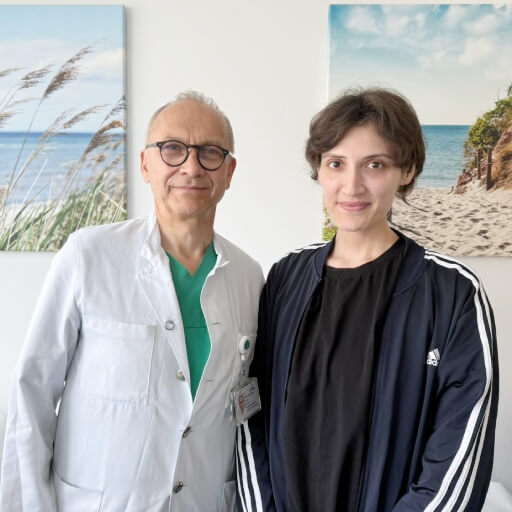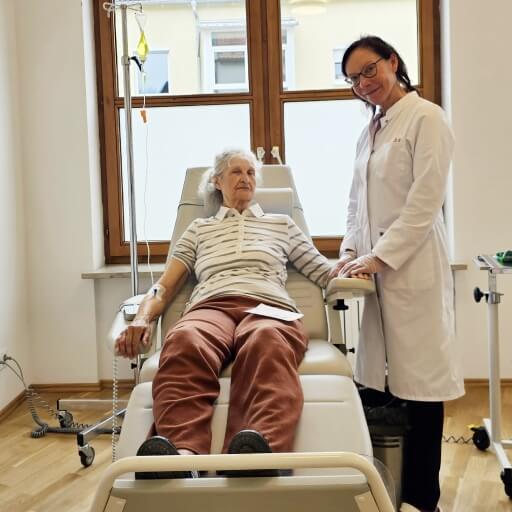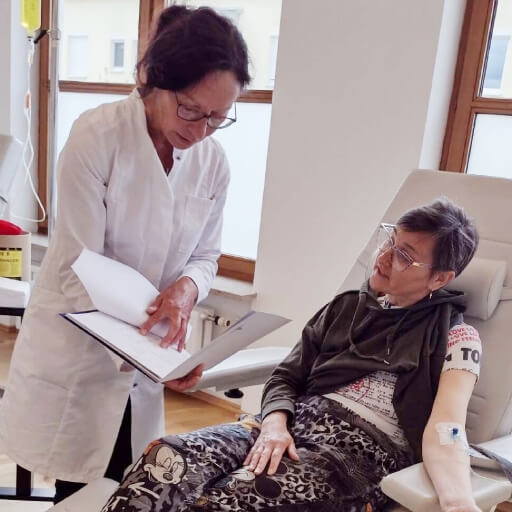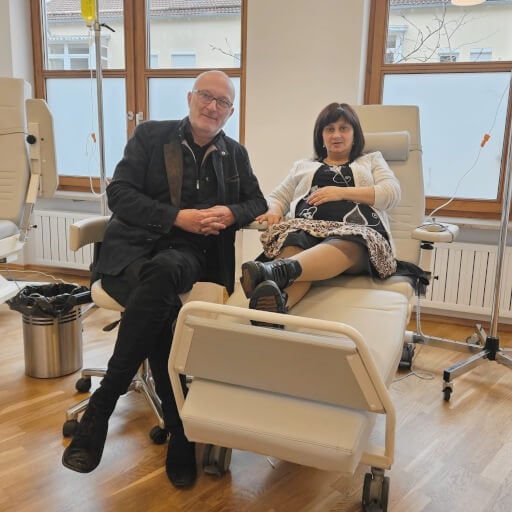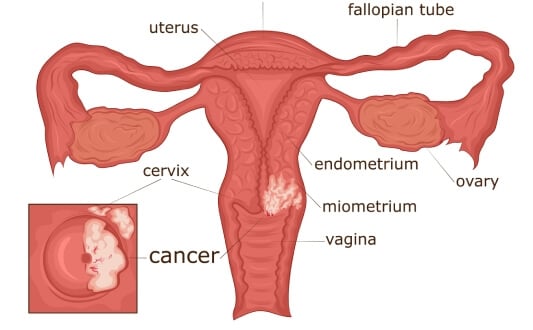يظل سرطان عنق الرحم أحد أكثر التشخيصات صعوبة التي يمكن أن تواجهها المرأة: ففي كل عام، يتم اكتشاف أكثر من نصف مليون حالة جديدة في جميع أنحاء العالم، ولا يُكتشف الكثير منها إلا بعد ظهور الأعراض. أدت التطورات في الفحص والتطعيم إلى تحسين الكشف المبكر، إلا أن التحديات لا تزال قائمة — بدءاً من التنقل عبر المراحل المعقدة إلى اختيار العلاج الأكثر فعالية وشخصية. سواءً تم تشخيصك حديثاً أو تبحث عن خيارات بعد تكرار المرض، فإن فهم الرحلة القادمة أمر بالغ الأهمية. في هذا الدليل، سنقوم بتقسيم المراحل الرئيسية، وشرح طرق العلاج المبتكرة، وتزويدك بالمعرفة اللازمة لطرح الأسئلة الصحيحة واتخاذ قرارات مستنيرة.
فهم سرطان عنق الرحم: التحديات الرئيسية
غالباً ما يرتبط الورم في عنق الرحم بعدوى فيروس الورم الحليمي البشري HPV المستمرة، وخاصةً السلالات عالية الخطورة مثل النوعين 16 و 18. تُسلط هذه النتائج الضوء على أهمية التدابير الوقائية وقد أثرت بشكلٍ كبير على نمو سوق لقاح فيروس الورم الحليمي البشري حول العالم. على الرغم من التطورات المُحرزة في الوقاية، لا يزال سرطان عنق الرحم يمثل مشكلة صحية عالمية كبرى. اعتباراً من عام 2022، كان مسؤولاً عن أكثر من 660.000 حالة جديدة وحوالي 350.000 حالة وفاة حول العالم [1]. يؤكد هذا العبء المستمر على الحاجة المُلحة إلى مواصلة التقدم في أساليب التشخيص والاستراتيجيات العلاجية التي تهدف إلى الكشف المبكر والعلاج الفعال.
يتطور المرض عادةً بشكل تدريجي، ويبدأ في كثير من الأحيان بتغيرات محتملة التسرطن قد تتطور على مدار سنوات إذا لم يتم اكتشافها وعلاجها. يُعد تحديد مرحلة سرطان عنق الرحم أمر بالغ الأهمية لاختيار استراتيجية العلاج الأنسب. يُعد نظام FIGO لتحديد المرحلة (آخر تحديث في عام 2018، وأُعيد تأكيده مرة أخرى في المبادئ التوجيهية ESGO / ESTRO / ESP لعام 2023 [2]) الأكثر استخداماً ويراعي النتائج السريرية والإشعاعية.
تتراوح المراحل من الأورام الموضعية إلى المرض النقيلي المتقدم:
- المرحلة الأولى: يقتصر السرطان على عنق الرحم. يتضمن ذلك الأورام المبكرة جداً القابلة للاكتشاف فقط تحت المجهر (المرحلة IA)، بالإضافة إلى الآفات المرئية المحدودة في عنق الرحم (المرحلة IB). يرتبط الكشف المبكر في هذه المرحلة بتوقعات ممتازة.
- المرحلة الثانية: يمتد السرطان إلى ما هو أبعد من عنق الرحم ولكنه يبقى داخل منطقة الحوض. قد يشمل الجزء العلوي من المهبل (المرحلة IIA) أو ينتشر إلى الأنسجة المجاورة للرحم (المرحلة IIB)، لكنه لا يصل إلى جدار الحوض أو الجزء السفلي من المهبل.
- المرحلة الثالثة: ينطوي المرض على انتشار واسع النطاق داخل الحوض. يشمل ذلك الثلث السفلي من المهبل (المرحلة IIIA)، أو الامتداد إلى جدار الحوض أو التسبُب في خلل في وظائف الكلى (المرحلة IIIB)، و/أو انتشار السرطان المؤكد إلى العقد اللمفاوية الحوضية أو المجاورة للأبهر (المرحلة IIIC).
- المرحلة الرابعة: ينتشر السرطان إلى أعضاء مجاورة مثل المثانة أو المستقيم (المرحلة IVA)، أو يكون لديه نقائل بعيدة تؤثر على أعضاء مثل الرئتين، أو الكبد، أو العظام (المرحلة IVB). هذه المرحلة هي الأكثر تقدُماً، وترتبط بتوقعات أسوأ بكثير.
يمكن إدارة المرحلة المبكرة من المرض باستخدام الجراحة وحدها، بينما تتطلب المراحل الأكثر تقدُماً في كثير من الأحيان مزيجاً من العلاج الكيميائي، والعلاج الإشعاعي، والعلاجات الموجهة بشكل متزايد. وفقاً للمبادئ التوجيهية ESGO/ ESTRO / ESP لعام 2023، يجب تصميم العلاج ليس وفقاً للمرحلة فقط ولكن أيضاً لعوامل المريض الفردية، مع التركيز على النهج متعدد التخصصات والقائم على الأدلة. بالتماشي مع أحدث المبادئ التوجيهية ESGO [3]، يمثل عام 2025 لحظة محورية في تطور رعاية سرطان عنق الرحم، ودمج الطب الدقيق، والتقنيات طفيفة التوغل، والدعم الشامل للمريضات.
خيارات العلاج القياسية
تلتزم ألمانيا بالمعايير المعترف بها دولياً لعلاج سرطان عنق الرحم، وخاصةً المبادئ التوجيهية ESGO / ESTRO / ESP. يتم تقديم العلاج في مراكز طب الأورام المتخصصة باستخدام أدوات تشخيصية متقدمة ونهج متعدد التخصصات. يُستخدم التدخل الجراحي في المقام الأول في المراحل المبكرة (FIGO I-IIA1)، بما في ذلك استئصال الرحم الجذري مع استئصال العقد اللمفاوية الحوضية. في حالات مختارة، يتم تنفيذ الإجراءات المحافظة على الخصوبة، مثل الاستئصال المخروطي أو قطع عنق الرحم الجذري. على الرغم من أن الجراحة طفيفة التوغل متاحة، توصي المبادئ التوجيهية لـ ESGO بالحذر في بعض الأورام عالية الخطورة.
يتم تطبيق العلاج الكيميائي بشكل أساسي كجزء من العلاج الكيميائي الإشعاعي المتزامن للأمراض المتقدمة موضعياً (≥IIB)، أو كعلاج جهازي في الحالات النقيلية أو المتكررة. في الحالات المتقدمة أو المستمرة، يمكن إضافة عوامل موجهة، مثل العلاجات المضادة لعامل نمو بطانة الأوعية الدموية Anti-VEGF therapies إلى العلاج الكيميائي لتحسين فرص البقاء على قيد الحياة بشكلٍ عام.
قد يتم النظر في العلاج المناعي، بما في ذلك مثبطات PD-1، بناءً على تعبير العلامات الحيوية، بما يتماشى مع إرشادات ESGO و EMA المتطورة.
يظل العلاج الإشعاعي حجر الزاوية في العلاج للمراحل IIB-IVA وكعلاج مساعد في مرضى المرحلة المبكرة المُعرضين للخطر. يتم تطبيق تقنيات مثل IMRT على نطاق واسع في المراكز الألمانية، مما يوفر دقة عالية وآثار جانبية قليلة.
العلاجات المبتكرة والمتقدمة
تمثل العلاجات المبتكرة والمتقدمة حقبة جديدة في الطب، حيث تقدم أساليب أكثر دقة، وتخصيصاً، وفعالية لإدارة المرض. تستمر هذه العلاجات المتطورة في إعادة تشكيل الممارسة السريرية وتحسين نتائج المرضى عبر مجموعة واسعة من الحالات.
الانصمام الكيميائي عبر الشرايين (TACE)
الانصمام الكيميائي عبر الشرايين (TACE) هو تقنية تداخلية متقدمة وفعالة سريرياً تُستخدم لاستهداف الأورام بدقة عالية. يجمع هذا الإجراء طفيف التوغل بين التوصيل المباشر للعلاج الكيميائي مع الانصمام، مما يؤدي إلى سد الشرايين المُغذية للورم بشكل انتقائي وحبس الدواء في موقع الورم وحرمانه من الأكسجين والمُغذيات.
في سرطان عنق الرحم المتقدم موضعياً، يمكن أن يخدم TACE كعلاج مساعد لتقليل عبء الورم قبل الجراحة أو الإشعاع، مما يُسهل الحصول على نتائج علاج أفضل. بالنسبة للمرض المتكرر أو النقيلي، يوفر TACE سيطرة موضعية فعالة، وتخفيف الأعراض، وانخفاض في حجم الورم مما يمكن أن يسمح باستمرار العلاجات الجهازية مثل العلاج المناعي أو العوامل الموجهة.
لا يعمل هذا النهج الموجه على تحسين السيطرة على الورم الموضعي وإدارة الأعراض فحسب، بل يلعب أيضاً دوراً رئيسياً في استراتيجيات العلاج متعددة الوسائط. أظهر TACE أنه يُعزز فعالية العلاجات الجهازية، بما في ذلك العلاج المناعي، من خلال تعزيز إطلاق مستضد الورم، وبالتالي دعم قدرة جهاز المناعة على التعرف على الخلايا السرطانية وتدميرها.
يتم التنفيذ تحت التوجيه الفلوري في الوقت الحقيقي، ويتضمن إدخال قسطرة من خلال الشريان الفخذي إلى الأوعية التي تُغذي الورم. بمجرد تحديد مكانها، يتم حقن العوامل العلاجية الكيميائية، يلي ذلك وضع مواد صِمية تمنع تدفق الدم إلى الورم بدقة.
TACE هو إجراء جيد التحمل وقابل للتكرار ويمكن تصميمه لتلبية احتياجات المريض الفردية. يُعد قيّماً بشكلٍ خاص في إدارة الحالات التي تكون فيها الخيارات الجراحية محدودة أو تتطلب العلاجات الجهازية الدعم. سواءً تم استخدامه كتدخل أساسي، أو لخفض مرحلة الورم، أو كجزء من نهج مُركب، فإن TACE يبُرز كأداة قوية في علاج سرطان عنق الرحم الشامل.
تعمل النتائج السريرية الحديثة للانصمام الكيميائي للشريان الرحمي للمرحلة المتقدمة أو سرطان عنق الرحم المتكرر [4] على تعزيز الإمكانات السريرية لـ TACE. في دراسة استباقية شملت 16 امرأة تعاني من سرطان عنق الرحم، أظهر TACE ملفات سلامة ممتازة وفعالية واعدة.
تُسلط هذه النتائج الضوء على TACE كخيار آمن وفعال ومُجدي اقتصادياً لتحسين النتائج لدى المرضى الذين لديهم بدائل محدودة — وهو مُكمل قوي لكلا من العلاج الإشعاعي والعلاج الجهازي.
العلاج الكيميائي الكهربائي لسرطان عنق الرحم
العلاج الكيميائي الكهربائي (ECT) لسرطان عنق الرحم يجمع بين تطبيق نبضات كهربائية وأدوية العلاج الكيميائي لزيادة فعالية العلاج بشكل كبير. يعمل العلاج الكيميائي الكهربائي Electrochemotherapy عن طريق إحداث مسام مؤقتة في أغشية الخلايا السرطانية — مما يسمح بامتصاص كميات كبيرة من الدواء لا يمكن امتصاصها بطريقة أخرى. وقد كان البروفيسور كارل ر. أيغنر رائداً في تطوير هذه التقنية لعلاج الأورام الخبيثة في الحوض، حيث أثبت أن خلايا الورم تصبح أكثر قابلية للتأثر بالعلاج بشكل كبير بعد تطبيق التثقيب الكهربائي Electroporation.
إجراء العلاج الكيميائي الكهربائي Electro-chemotherapy: يتم وضع أقطاب كهربائية حول الورم على مسافة 2.5-3 سنتيمترات لتوليد مجالات كهربائية. يتم إيصال النبضات الكهربائية (يكون المريض تحت التخدير) بالتزامن مع تخطيط كهربائية القلب ECG لتجنب أي مضاعفات قلبية — حيث يتحكم نظام حاسوبي بكل شيء تلقائياً. تُصبح الخلايا السرطانية مسامية وذات نفاذية عالية. وعند إعطاء العلاج الكيميائي بتركيز عالٍ، يزداد اختراق الدواء للخلايا بشكلٍ كبير.
يُعدّ العلاج الكيميائي الكهربائي لسرطان عنق الرحم فعالاً بشكلٍ خاص في الحالات المتكررة أو لدى المريضات اللواتي سبق أن خضعن للعلاج الإشعاعي. قد يتقلص حجم الأورام بنسبة 80٪ خلال أسبوع واحد في بعض الحالات — وهو ما يعكس القوة العلاجية الكبيرة لهذا النهج. كما أن الآثار الجانبية تكون في حدها الأدنى نظراً لكون العلاج موضعياً.
تختلف تكلفة العلاج الكيميائي الكهربائي باختلاف درجة تعقيد الحالة. توفر Booking Health معلومات تفصيلية حول تكلفة العلاج الكيميائي الكهربائي — حيث يُعدّ هذا النوع من العلاج استثماراً مُجدياً عند استنفاد الخيارات العلاجية التقليدية.
العلاج الكيميائي الإقليمي لسرطان عنق الرحم
العلاج الكيميائي الإقليمي Regional chemotherapy لسرطان عنق الرحم يقوم بإيصال أدوية مُركّزة مباشرةً إلى منطقة الحوض عبر قسطرة شريانية — مُتجنباً بذلك التخفيف الدوائي الذي يحدث مع العلاج الكيميائي الجهازي. وقد طوّر البروفيسور كارل ر. أيغنر تقنيات التروية الحوضية المعزولة Isolated Pelvic Perfusion، مُحققاً بذلك هدأة تامة لدى مريضات سرطان عنق الرحم دون الحاجة إلى العلاج الإشعاعي، وهو ما يُعدّ تقدُماً بالغ الأهمية للنساء اللواتي يواجهن هذا التشخيص. يمكنكم مشاهدة المقابلة مع البروفيسور كارل ر. أيغنر في نهاية هذا القسم.
يعتمد عمل هذه الطريقة على عزل تدفق الدم إلى الحوض. ويتم إعطاء جرعات عالية من أدوية العلاج الكيميائي مباشرةً إلى موضع الورم — بتركيزات أعلى بمقدار 10-20 مرة من تلك التي يمكن للعلاج الجهازي إيصالها بأمان. ولهذا السبب، فإن النتائج تكون مذهلة: فقد حقق بعض المرضى الذين عُولجوا على يد البروفيسور أيغنر هدأة تامة دون الحاجة إلى العلاج الإشعاعي، ودون آثار جانبية خطيرة، وبدون المضاعفات طويلة الأمد التي يُسببها الإشعاع (كالندوب، والضعف الجنسي، ومشاكل الأمعاء).
تستجيب سرطانات الخلايا الحرشفية، مثل سرطان عنق الرحم، بشكلٍ جيد للغاية لـ العلاج الكيميائي الإقليمي. فإمداد الدم لهذه الأورام في منطقة الحوض جيد، مما يسمح للأدوية بالوصول إلى الخلايا السرطانية بكفاءة عالية عند إعطائها عبر الشرايين. بعد العلاج، تُجرَى عمليات ترشيح خاصة لإزالة الأدوية المتبقية — ويُصبح بإمكان المرضى التجول داخل المستشفى بحلول فترة ما بعد الظهر.
العلاج الكيميائي بالهباء الجوي المضغوط داخل الصفاق (PIPAC)
العلاج الكيميائي بالهباء الجوي المضغوط داخل الصفاق (PIPAC) هو نهج علاج متطور وطفيف التوغل، مصمم لإدارة نقائل الصفاق بفعالية موضعية عالية وسُمية جهازية ضئيلة. في سياق سرطان عنق الرحم المتقدم مع تورط الصفاق، يوفر PIPAC خياراً قوياً للسيطرة على تقدُم المرض، وتخفيف الأعراض، والحفاظ على جودة الحياة.
تتضمن هذه التقنية توصيل العلاج الكيميائي على شكل رذاذ تحت الضغط مباشرةً إلى تجويف البطن عن طريق تنظير البطن. يعمل هذا الضغط على تعزيز عمق اختراق الدواء لأنسجة الورم ويضمن توزيعاً متساوياً عبر أسطح الصفاق. باستهداف السرطان موضعياً مع تقليل التعرض الجهازي، يسمح PIPAC بتركيزات أعلى للدواء داخل الورم مع آثار جانبية أقل.
أثبت PIPAC فعاليته العلاجية لدى مريضات سرطان عنق الرحم، وخاصةً أولئك اللاتي يعانين من انتشار في الصفاق أو استجابة محدودة للعلاجات الجهازية. يسمح بتطبيقات متكررة، مما يتيح السيطرة المستمرة على الورم مع الحفاظ على ملف أمان مناسب. بالإضافة إلى ذلك، يمكن دمج PIPAC في خطط العلاج متعددة الوسائط، مما يُعزز فعالية العلاج الكيميائي الجهازي أو العلاج المناعي.
الفوائد الرئيسية لـ PIPAC في إدارة سرطان عنق الرحم:
- تركيز موضعي عالي للدواء مع سُمية جهازية منخفضة
- تقليل حجم الورم بشكل فعال والسيطرة على الأعراض
- الحفاظ على جودة الحياة، حتى في المراحل المتقدمة
- خيار علاج طفيف التوغل، وقابل للتكرار
- متوافق مع العلاجات الجهازية واستراتيجيات الرعاية التلطيفية
يتم إجراء PIPAC عن طريق تنظير البطن، كما يتيح أيضاً تقييم تقدُم المرض واستجابة العلاج في الوقت الفعلي، مما يوفر قيمة علاجية وتشخيصية. يلعب دوراً حاسماً في توسيع الخيارات العلاجية للمرضى ذوي البدائل المحدودة، ويدعم نهجاً أكثر تخصيصاً للرعاية.
كجزء من استراتيجية شاملة لسرطان عنق الرحم المتقدم، يمثل PIPAC طريقة علاج حديثة، وفعالة، ومتمركزة حول المريضة ومصممة لتحسين النتائج حيث قد تفشل العلاجات التقليدية.
العلاج بالخلايا المتغصنة
يمثل العلاج بالخلايا المتغصنة (DC) نهجاً رائداً في العلاج المناعي للسرطان، من خلال تسخير جهاز المناعة في الجسم لاستهداف الخلايا السرطانية والقضاء عليها. الخلايا المتغصنة هي خلايا متخصصة في تقديم المستضدات وتلعب دوراً حاسماً في بدء وتنظيم استجابات مناعية. تقوم بالتقاط المستضدات ومعالجتها، وتقديمها إلى الخلايا التائية T-cells، وبالتالي تنشيط جهاز المناعة التكيفي للتعرف على الخلايا السرطانية وتدميرها.
الخلفية العلمية
يعتمد أساس العلاج بالخلايا المتغصنة Dendritic cell therapy على الاكتشافات المناعية الرائدة. في عام 1973، حدد الدكتور رالف م. ستاينمان الخلايا المتغصنة كفئة مميزة من الخلايا المناعية، والتي تلعب دوراً محورياً في بدء استجابات مناعية تكيفية. وبفضل هذا الاكتشاف، حصل على جائزة نوبل في علم وظائف الأعضاء أو الطب عام 2011.
يمثل العلاج بالخلايا المتغصنة نهج حديث وشخصي للعلاج المناعي يهدف إلى إعادة تنشيط جهاز المناعة للمريض لاستهداف وتدمير الخلايا السرطانية. يُعد هذا العلاج مهماً بشكل خاص للمريضات اللاتي يعانين من سرطان عنق الرحم المتكرر، أو المتبقي، أو النقيلي، حيث يكون للعلاجات التقليدية تأثير محدود.
عملية العلاج
يتضمن العلاج عدة خطوات دقيقة، يتم إجراؤها جميعها في ظل ظروف معملية معتمدة وفقاً لـ GMP. أولاً، يتم أخذ عينة من دم المريض (حوالي 200 مل) لعزل الخلايا الوحيدة — وهي الخلايا المناعية الأولية التي ستتطور لاحقاً إلى خلايا متغصنة. في المختبر، يتم إنضاج هذه الخلايا و"تدريبها" باستخدام مستضدات خاصة بالورم، إما مشتقة من أنسجة الورم أو بروتينات موحدة مرتبطة بفيروس الورم الحليمي البشري HPV، والتي تشارك عادةً في سرطان عنق الرحم.
بعد الزراعة ومراقبة الجودة التي تستغرق سبعة أيام، يتم تحضير الخلايا المتغصنة لإعادة إدخالها إلى جسم المريض. يتم حقنها تحت الجلد — عادةً في منطقة الفخذ — لتنشيط استجابة الخلايا التائية T-cell الموجهة. يهدف هذا التنشيط المناعي إلى التعرف على الخلايا السرطانية وتدميرها في جميع أنحاء الجسم، وليس فقط في موقع الحقن.
الأدلة السريرية
في تجربة سريرية من المرحلتين الأولى والثانية، شملت 45 مريضة تعاني من سرطان عنق الرحم المتكرر أو النقيلي، عولجن بلقاحات الخلايا المتغصنة، أظهرت 44٪ من المريضات استجابة مناعية إيجابية وشهدن تراجع جزئي أو كلي في الورم.
أفادت دراسة أخرى أُجريت على 30 مريضة مصابة بسرطان عنق الرحم المتقدم أن 62٪ من المريضات أظهرن تحسُناً في جودة الحياة وتنشيط المناعة، مع متوسط بقاء على قيد الحياة إجمالي لمدة 12 شهراً، مما يُظهر نتائج ممتازة مقارنةً بالعلاجات القياسية.
| نوع العلاج | معدل البقاء على قيد الحياة لمدة عامين | معدل الاستجابة | المدة | الآثار الجانبية |
|---|---|---|---|---|
| العلاجات القياسية | ~٪25 للسرطان المتقدم | أقل من 10٪ | عدة أسابيع إلى أشهر | متوسطة إلى شديدة (تعب، وغثيان، وعقم، ومشاكل الأمعاء/المثانة) |
| الأساليب المبتكرة | ~٪75-60 في حالات متقدمة/مقاومة مختارة | ~٪65-45 | ما يصل إلى 4-6 جلسات | خفيفة (حمى، والتهاب موضعي، وأعراض تُشبه أعراض الأنفلونزا) |
*تحليلات سريرية لـ Booking Health. قد تختلف النتائج الفعلية من حالة لأخرى.
فيما يتعلق بالسلامة، فإن العلاج بالخلايا المتغصنة جيد التحمل بشكلٍ عام، حيث يشهد أقل من 5٪ من المرضى آثار جانبية خفيفة إلى متوسطة، معظمها ردود فعل موضعية في موقع الحقن. لمعرفة المزيد عن التكلفة لعلاج سرطان عنق الرحم، بما في ذلك تفاصيل التسعير، وباقات العلاج المتاحة، وقائمة المستشفيات الرائدة في جميع أنحاء العالم، تفضلي بزيارة صفحتنا المخصصة. توفر تقديرات شفافة للتكلفة، وتساعدك على مقارنة المستشفيات بناءً على الخدمات، والموقع، والخبرة.
للحصول على فهم أعمق للعلاج بالخلايا المتغصنة، ندعوك لمشاهدة المقابلة التالية مع أحد الخبراء الرائدين في هذا المجال، البروفيسور فرانك جانسوج. يناقش الخبير آليات العلاج بالخلايا المتغصنة، وتطبيقاتها السريرية، والاتجاهات المستقبلية لهذا العلاج الواعد.
رؤى الخبراء من البروفيسور جانسوج: قوة العلاج بالخلايا المتغصنة في علاج السرطان
فرصة ثانية: معركة ماريا ضد المرحلة الرابعة من سرطان عنق الرحم
يُعد تشخيص المرحلة الرابعة من سرطان عنق الرحم، وخاصةً مع النقائل إلى الرئتين، أو الكبد، أو العظام — أمر مُدمر نفسياً وجسدياً. بدون علاج فعال وفي الوقت المناسب، قد يتطور المرض بسرعة، ويكون مصحوباً بأعراض مُنهكة مثل النزيف المزمن، والتعب، وآلام الحوض الشديدة. ومع ذلك، في السنوات الأخيرة، تطور مشهد رعاية مرضى السرطان بشكل كبير. إن المراكز الطبية المبتكرة، إلى جانب خدمات دعم المرضى الدوليين المخصصة، تجعل من الممكن الوصول إلى علاجات رائدة واستعادة السيطرة على مسار المرض.
اليوم، العلاجات المتقدمة، مثل العلاج المناعي، والعلاج بالخلايا المتغصنة، والإجراءات التداخلية الموجهة مثل الانصمام الكيميائي تُقدم أملاً جديداً. إن المرضى الذين قيل لهم في السابق أنهم لا يملكون أي خيار آخر، يرون الآن تحسينات سريرية كبيرة وعودة إلى الحياة ذات الجودة.
ماريا جونزاليس، امرأة تبلغ من العمر 47 عاماً من أسبانيا، كانت تواجه الواقع المرير المتمثل في المرحلة الرابعة من سرطان عنق الرحم مع نقائل. كان المرض قد انتشر بالفعل إلى كبدها ورئتيها، تاركاً إياها تعاني من ألم مستمر مع طاقة قليلة للعمل. لم يستطع الأطباء المحليون سوى تقديم الرعاية التلطيفية، ونصحوها بالتركيز على الراحة بدلاً من الشفاء.
لكن ماريا لم تكن مستعدة للاستسلام. بدأت هي وابنتها في البحث خارج الحدود عن حلول أكثر تقدماً. قادهم هذا البحث إلى Booking Health، وهي منصة سياحة طبية موثوقة تربط المرضى الدوليين بالمستشفيات وأطباء الأورام الرائدين في جميع أنحاء العالم. من خلال Booking Health، تم تقديم ماريا لمركز متخصص في علاج السرطان في ألمانيا والمعروف بنجاحه في علاج الأورام الخبيثة النسائية المتقدمة باستخدام العلاج بالخلايا المتغصنة والعلاج الكيميائي.
منذ تلك اللحظة، أصبحت Booking Health جزءاً أساسياً من رحلتها العلاجية. قام الفريق بتنسيق كل التفاصيل — بدءاً من اختيار المستشفى، وحجز المواعيد، وحتى التعامل مع أوراق التأشيرة، وخدمات الترجمة، وحتى دعم ما بعد العلاج. هذه المساعدة الشاملة سمحت لماريا بالتركيز بشكلٍ كامل على تعافيها، دون التعرض لضغط التنقل عبر نظام الرعاية الصحية الأجنبي بمفردها.
عقب وصولها إلى المستشفى، خضعت ماريا لتشخيصات مكثفة. قام فريقها الطبي بتطوير خطة علاج مصممة خصيصاً لها تجمع بين العلاج المناعي المتطور مع العلاج الكيميائي الموجه لمعالجة النقائل في كبدها. كانت الاستجابة سريعة. وفي غضون أسابيع، بدأت أعراضها في التراجع، وبعد ثلاثة أشهر فقط، أكد التصوير انخفاضاً كبيراً في حجم الورم.
بعد ستة أشهر، شهدت ماريا تحسُناً ملحوظاً في جودة حياتها. خف ألمها، وعادت طاقتها، حتى أنها استأنفت عملها بدوام جزئي. "لم أتخيل يوماً أنني سأعود إلى طبيعتي مرة أخرى،" كما تشارك. "شعرت أن الرعاية التي تلقيتها كانت طبيعية وعطوفة — وبفضل الأطباء و Booking Health، حصلت على فرصة ثانية."
اليوم، تواصل ماريا العلاج المناعي بالمداومة وتتابع حالتها بانتظام مع فريقها الطبي. تُعد حالتها مثالاً ساطعاً على كيف أن الوصول إلى خيارات العلاج المتقدمة والتنسيق الدولي المتخصص يمكن أن يُحدث تغييراً جذرياً في التوقعات حتى لأكثر التشخيصات خطورة.
بالنسبة للمرضى مثل ماريا، فإن Booking Health هي أكثر من مجرد مُقدم خدمة — إنها شريان للحياة، وجسر للرعاية ذات المستوى العالمي، وشريك في المكافحة ضد السرطان.
سرطان عنق الرحم المتقدم: هناك دائماً طريق للمضي قدماً
قد يبدو تشخيص المرحلة المتأخرة من سرطان عنق الرحم وكأنه نهاية الطريق، ولكن ليس من الضروري أن يكون الأمر كذلك. حتى في حالات المرحلتين الثالثة والرابعة، حيث قد ينتشر المرض إلى أعضاء بعيدة وتبدو الخيارات التقليدية مستنفدة، يقدم طب الأورام الحديث مجموعة من استراتيجيات العلاج المبتكرة التي تستمر بالتطور كل عام.
في هذا المستوى من التعقيد، لا يوجد نهج واحد يناسب الجميع. ما يصنع الفارق هو القدرة على تصميم خطة علاج مصممة خصيصاً للحالة الفريدة، والاحتياجات، والأهداف الخاصة بكل فرد. يتضمن هذا غالباً مزيج متوازن بعناية من العلاجات الجهازية (مثل العلاج الكيميائي أو العلاج المناعي)، والإجراءات التداخلية (مثل TACE)، والعلاجات الخلوية المتقدمة مثل العلاج بالخلايا المتغصنة Dendritic cell therapy. في كثير من الحالات، لا توفر هذه الاستراتيجيات متعددة الوسائط السيطرة على الأعراض فحسب، بل توفر أيضاً إمكانية حقيقية لإطالة الحياة واستعادة جودتها.
هذا هو بالضبط المكان الذي تتدخل فيه Booking Health. نحن نتفهم مدى الإلحاح، والخوف، والعدد الهائل من القرارات التي يواجهها المرضى الذين يعانون من سرطان متقدم. مهمتنا هي إيصالك بمراكز طبية ذات مستوى عالمي، وأفضل أطباء الأورام، وأحدث خيارات العلاج — بسرعة وأمان، وبدعم لوجستي كامل. من ترجمة الوثائق الطبية والمساعدة في الحصول على التأشيرة إلى الجدولة المباشرة للمواعيد والتنسيق الشخصي طوال فترة العلاج، نحن بجانبك في كل خطوة على الطريق.
بالنسبة للمريضات اللاتي يواجهن المرحلة الرابعة من سرطان عنق الرحم، ندعوك لقراءة دليلنا الشامل لعلاج المرحلة 4 من سرطان عنق الرحم، حيث ستجدين معلومات متعمقة، وخيارات، ونتائج من الحياة الواقعية تُثبت أن الأمل لا يزال موجوداً.
بغض النظر عن كيف قد يبدو تعقيد تشخيص حالتك، فأنت لست وحدك، وحالتك ليست ميؤوساً منها. مع الاستراتيجية الصحيحة والدعم المناسب، يصبح التعافي أكثر من مجرد احتمال. بل يُصبح خطة.
علاج السرطان في الخارج: تجارب المرضى مع Booking Health
رحلة طبية: كل خطوة على الطريق مع Booking Health
يُعد إيجاد أفضل استراتيجية علاج لحالتك السريرية مهمةً صعبة. كونك مرهق بالفعل من جلسات العلاج المتعددة، واستشارة العديد من المتخصصين، وتجربة مختلف التدخلات العلاجية، قد تجد نفسك في حيرة من أمرك بسبب المعلومات التي يقدمها الأطباء لك. في مثل هذه الحالة، من السهل اختيار خيار مباشر أو اتباع بروتوكولات علاجية موحدة ذات قائمة طويلة من الآثار السلبية بدلاً من اختيار خيارات علاج مبتكرة عالية التخصص.
لاتخاذ اتخاذ قرار مستنير والحصول على خطة مخصصة لإدارة السرطان، والتي سيتم تصميمها لتناسب حالتك السريرية المحددة، استشر الخبراء الطبيين في Booking Health. نظراً لكونها في الطليعة في تقديم أحدث الابتكارات الطبية لـ 12 عاماً بالفعل، تتمتع Booking Health بخبرة قوية في إنشاء برامج معقدة لإدارة السرطان في كل حالة فردية. كشركة مرموقة، تُقدم Booking Health خطط علاج شخصية لسرطان عنق الرحم مع حجز مباشر للمستشفى ودعم كامل في كل مرحلة، بدءاً من العمليات التنظيمية ووصولاً إلى المساعدة أثناء العلاج. نحن نُقدم:
- تقييم وتحليل التقارير الطبية
- تطوير برنامج الرعاية الطبية
- اختيار موقع العلاج المناسب
- إعداد الوثائق الطبية وإرسالها إلى المستشفى المناسب
- الاستشارات التحضيرية مع الأطباء لتطوير برامج الرعاية الطبية
- نصائح الخبراء أثناء الإقامة في المستشفى
- رعاية المتابعة بعد عودة المريض إلى بلده الأصلي بعد إكمال برنامج الرعاية الطبية
- الاهتمام بالإجراءات الرسمية كجزء من التحضير لبرنامج الرعاية الطبية
- تنسيق وتنظيم إقامة المريض في بلد أجنبي
- المساعدة في الحصول على التأشيرات وتذاكر الطيران
- مُنسق شخصي ومترجم فوري مع دعم على مدار الساعة 24/7
- ميزانية شفافة دون تكاليف خفية
الصحة جانب لا يُقدر بثمن في حياتنا. ينبغي تفويض إدارة شيء هش ولكنه ثمين فقط إلى خبراء يتمتعون بخبرة مُثبتة وسمعة طيبة. Booking Health هو شريك جدير بالثقة يساعدك على طريق الحصول على صحة أقوى وجودة حياة أفضل. اتصلي بمستشارنا الطبي لمعرفة المزيد عن إمكانيات العلاج الشخصي باستخدام أساليب مبتكرة لسرطان عنق الرحم مع متخصصين رائدين في هذا المجال.
الأسئلة الشائعة لمرضانا حول علاج سرطان عنق الرحم
أرسل طلب للعلاجيشمل علاج سرطان عنق الرحم Cervical cancer العلاج الكيميائي، أو الجراحة، أو الإشعاع. في المراحل الأكثر تقدماً، يمكن أن يشمل علاج سرطان عنق الرحم العلاج المناعي، والعلاج الموجه، والعلاج بالخلايا المتغصنة Dendritic cell therapy و TACE.
نعم، عادةً ما يكون سرطان عنق الرحم قابلاً للعلاج، خاصةً في المرحلة الأولية. ويمكن استخدام العلاجات الأجدد بنجاح في مريضات سرطان عنق الرحم حتى في المراحل المتأخرة من المرض أو خلال حالات التكرار لإطالة البقاء على قيد الحياة بشكلٍ كبير وتقليل فرص الانتكاس.
يتم استخدام اختبارات مسحة عنق الرحم Pap tests واختبار فيروس الورم الحليمي البشري HPV testing وخزعة عنق الرحم في تشخيص سرطان عنق الرحم. ولتقييم مدى انتشار المرض وعلاج مرحلة سرطان عنق الرحم، من الأفضل استخدام أدوات التصوير، مثل التصوير بالرنين المغناطيسي MRI أو التصوير المقطعي المحوسب CT أو التصوير المقطعي بالإصدار البوزيتروني PET.
تعتمد معدلات البقاء على قيد الحياة لسرطان عنق الرحم على مرحلة السرطان. تُظهر المرحلة الأولى من سرطان عنق الرحم معدل بقاء على قيد الحياة يزيد عن 90٪ خلال خمس سنوات. أما سرطان عنق الرحم، خاصةً المرحلة II-A من سرطان عنق الرحم، له توقعات منخفضة نوعاً ما لكنه يبعث على التفاؤل.
يُعد العلاج الكيميائي لسرطان عنق الرحم ضروري أيضاً، لا سيما في المراحل المتقدمة. ويُستخدم عادةً بالاشتراك مع الإشعاع ويساعد في تقليص حجم الورم وتخفيف الأعراض.
في بعض حالات المرحلة المبكرة من سرطان عنق الرحم، يمكن الحفاظ على الخصوبة، خاصةً في الإجراءات المُحافظة على الخصوبة مثل استئصال عنق الرحم الجذري أو الاجتثاث بالليزر. ومع ذلك، قد تؤثر بعض العلاجات على الخصوبة. قبل أن تبدأ المريضات العلاج، يحتجن إلى استشارة خاصة للتعامل مع المخاوف المتعلقة بالحمل المستقبلي.
تشمل الآثار الجانبية لعلاج سرطان عنق الرحم التعب، والغثيان، ومشاكل تتعلق بجهاز المناعة. ينطوي العلاج الإشعاعي على خطر التأثير على وظائف المثانة أو الأمعاء، في حين أن الجراحة قد تُسبب ألم أو عدوى. يجب على المريضات التحدث مع طبيبهن حول الجوانب المرتبطة بالتعافي.
غالباً ما يتضمن علاج المرحلة صفر من سرطان عنق الرحم وعلاج المرحلة الأولى من سرطان عنق الرحم إجراء جراحة، ويمكن أن يكون ذلك ممكناً في بعض حالات المرحلة الثانية من سرطان عنق الرحم. في المراحل المتقدمة، يمكن استخدامها كعلاج تلطيفي.
يعمل العلاج الإشعاعي على تدمير الخلايا السرطانية في عنق الرحم والمنطقة المحيطة باستخدام حزم عالية الطاقة. ويُستخدم كعلاج روتيني في حالة المرض غير القابل للجراحة أو المرض المتقدم موضعياً.
نعم. يُعد العلاج المناعي أحد العلاجات الناشئة لسرطان عنق الرحم المتكرر أو المتقدم. تعمل هذه العلاجات على تحفيز جهاز المناعة لمحاربة خلايا السرطان وتُستخدم بشكل متزايد للمرضى الذين يُظهرون تعبيراً عن PD-L1 أو لأولئك الذين لا يستجيبون لأساليب العلاج الأخرى.
التطعيم ضد فيروس الورم الحليمي البشري HPV ليس علاج للسرطان. ومع ذلك، فإنه يحمي المريضات من أنواع فيروس الورم الحليمي البشري عالية الخطورة التي تُسبب غالبية حالات سرطان عنق الرحم. وقد ثَبُتَ أن التطعيم الوقائي قبل التعرُض لفيروس الورم الحليمي البشري يلعب دوراً كبيراً في الوقاية من سرطان عنق الرحم، خاصةً في المستقبل.
نعم، خاصةً في حالات سرطان عنق الرحم في المراحل المتقدمة. تُعد المتابعة مهمة للكشف المبكر عن التكرار. ينبغي أيضاً فحص الأعراض مثل النزيف غير المعتاد أو الألم في الحوض في أسرع وقتٍ ممكن.
عادة ما تتم زيارات المتابعة بعد كل 3-6 أشهر خلال أول سنتين، وبعد ذلك ستتم الزيارات كل 6-12 شهراً. قد تشمل هذه الزيارات الفحص البدني، والتصوير، واختبارات مخبرية للتحقق من التكرار أو الآثار الجانبية المتأخرة للعلاج.
تشمل العلاجات الجديدة لسرطان عنق الرحم العلاج المناعي، والعلاج بالخلايا المتغصنة، و TACE والعوامل البيولوجية. هذه هي العلاجات البديلة لسرطان عنق الرحم، خاصةً في حالات النقائل أو التكرار حيث تكون طرق العلاج القياسية غير فعالة.
يبلغ متوسط معدل البقاء على قيد الحياة لمدة عامين لسرطان عنق الرحم المتقدم أو المرحلة الرابعة حوالي 25٪ مع العلاج التقليدي. ومع ذلك، يمكن أن يصل المعدل إلى 60-75٪ لدى المرضى الذين يتلقون علاجات مبتكرة (مثل العلاج بالخلايا المتغصنة أو PIPAC أو TACE) في مراكز الأورام المتخصصة.
في سرطان عنق الرحم، يُحقق العلاج الكيميائي الإشعاعي التقليدي معدل استجابة للورم أقل من 10٪. ومن ناحيةً أخرى، أظهرت الأساليب العلاجية المتقدمة مثل العلاج الكيميائي الكهربائي، والعلاج بالخلايا المتغصنة، والأشعة التداخلية الموجهة معدلات استجابة تتراوح بين 45-65٪ لدى بعض المرضى.
غالباً ما تستمر دورات العلاج القياسية لسرطان عنق الرحم من عدة أسابيع إلى عدة أشهر، وذلك حسب نظام العلاج. في المقابل، فإن العلاجات المبتكرة (مثل TACE أو PIPAC أو العلاج بالخلايا المتغصنة) يمكن إكمالها في غضون أربع إلى ست جلسات قصيرة.
في ألمانيا، تتراوح تكلفة دورة العلاج الكاملة من 25.000 € - 60.000 € للعلاجات المبتكرة ومن 80.000 € - 150.000 € للخيارات التقليدية. تكون التكاليف أعلى في المملكة المتحدة والولايات المتحدة الأمريكية، حيث قد تتجاوز الأسعار 120.000 € - 180.000 €. تظل إمكانية الوصول للعلاجات في أستراليا محدودة، وعند توفرها، فإنها تميل إلى أن تكون أغلى بكثير.
إدارة سرطان عنق الرحم تكون فردية وشخصية وتعتمد على مرحلة سرطان عنق الرحم، وانتشار الورم، وحالة المريضة. إلى جانب أساليب العلاج القياسية للأورام، قد يستفيد المرضى من التقنيات الموضعية الإقليمية، أو الاستراتيجيات القائمة على المناعة، أو العلاج داخل الصفاق – عندما تكون الخيارات التقليدية محدودة.
يتم تحقيق أفضل النتائج في المراكز التي تُعالج سرطان عنق الرحم بانتظام وتعمل ضمن برامج متخصصة في الأورام النسائية. الخبرة في التعامل مع أورام الحوض المعقدة، وإمكانية اتخاذ قرار متعدد التخصصات، والقدرة على تكييف العلاج (عندما يتغير سلوك المرض) تُعد أموراً بالغة الأهمية.
غالبًا ما يختار المرضى الدول التي تتمتع بأنظمة رعاية السرطان المُنظمة، وبروتوكولات سريرية شفافة، ورقابة صارمة على الجودة. وتُعد ألمانيا مثالاً ممتازاً على ذلك – فقرارات العلاج هنا مبنية على الأدلة، وتتم مراقبتها عن كثب، ويتم تعديلها على الفور عند الحاجة.
اختر العلاج في الخارج وستحصل بالتأكيد على أفضل النتائج!
المؤلفون:
تم تحرير المقال من قبل خبراء طبيين وأطباء معتمدين من مجلس الأطباء الدكتورة ناديجدا إيفانيسوفا و الدكتور بوغدان ميخالنيوك. لعلاج الحالات المشار إليها في المقال، يجب استشارة الطبيب؛ المعلومات الواردة في المقالة ليست مخصصة للتطبيب الذاتي!
سياستنا التحريرية، التي توضح بالتفصيل التزامنا بالدقة والشفافية، متاحة هنا. انقر على هذا الرابط لمراجعة سياساتنا.
المصادر:
[1] International Agency for Research on Cancer (IARC). سرطان عنق الرحم.
https://www.iarc.who.int/cancer-type/cervical-cancer
[2] ScienceDirect. المبادئ التوجيهية ESGO / ESTRO / ESP لإدارة المريضات اللاتي يعانين من سرطان عنق الرحم – تحديث 2023*.
https://www.sciencedirect.com/science/article/pii/S1048891X24024241
[3] The European Society of Gynaecological Oncology (ESGO). إرشادات الجيب لسرطان عنق الرحم.
https://www.esgo.org/media/2019/03/Pocket-Guidelines_Cervical-cancer_June2023.pdf
[4] PubMed. النتائج السريرية للانصمام الكيميائي الشرياني الرحمي باستخدام حبيبات مُطلقة للدواء لعلاج المرحلة المتقدمة أو المتكررة من سرطان عنق الرحم.
https://pubmed.ncbi.nlm.nih.gov/34476534/
اقرأ:
قائمة المقالات:
لا تعرف من أين تبدأ؟
اتصل بـ Booking Health
